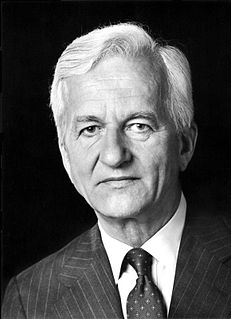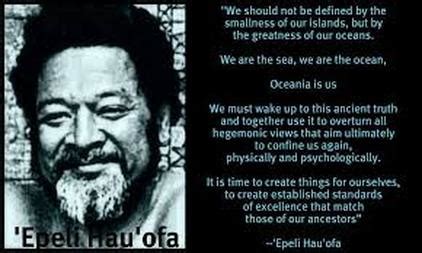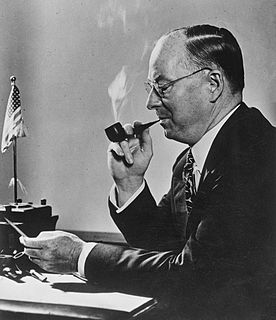A Quote by Richard von Weizsaecker
All of us, whether guilty or not, whether old or young, must accept the past. It is not a case of coming to terms with the past. That is not possible. It cannot be subsequently modified or undone.
Related Quotes
True forgiveness deals with the past, all of the past, to make the future possible. We cannot go on nursing grudges even vicariously for those who cannot speak for themselves any longer. We have to accept that we do what we do for generations past, present and yet to come. That is what makes a community a community or a people a people-for better or for worse.
It opposes the dogmatic application to all cases of what is adequate only for piecemeal aggregates. The question is whether an approach in piecemeal terms, through blind connections, is or is not adequate to interpret actual thought processes and the role of the past experience as well. Past experience has to be considered thoroughly, but it is ambiguous in itself; so long as it is taken in piecemeal, blind terms it is not the magic key to solve all problems.
If we could travel into the past, it's mind-boggling what would be possible. For one thing, history would become an experimental science, which it certainly isn't today. The possible insights into our own past and nature and origins would be dazzling. For another, we would be facing the deep paradoxes of interfering with the scheme of causality that has led to our own time and ourselves. I have no idea whether it's possible, but it's certainly worth exploring.
And so it is with our own past. It is a labour in vain to attempt to recapture it: all the efforts of our intellect must prove futile. The past is hidden somewhere outside the realm, beyond the reach of intellect, in some material object (in the sensation which that material object will give us) of which we have no inkling. And it depends on chance whether or not we come upon this object before we ourselves must die.
I think any relationship that is normal - I mean, there's no normal relationship, but in terms of a flawed relationship, there's always gonna be awkward moments within that because you're addressing things that the world is throwing at you, whether that's distance or whether that's where this is going or other people and past relationships, all these factors.
As we move forward, you cannot resolve the potential food crisis or shortages without science being part of the solution. Science has to be part of the solution but African governments - and these are decisions for governments, whether they embrace or do not embrace genetically modified food - and for the moment, most African companies do not accept genetically modified seeds.
That the past is ahead, in front of us, is a conception of time that helps us retain our memories and to be aware of its presents. What is behind us [the future] cannot be seen and is liable to be forgotten readily. What is ahead of us [the past] cannot be forgotten so readily or ignored, for it is in front of our minds' eyes, always reminding us of its presence. The past is alive in us, so in more than a metaphorical sense the dead are alive - we are our history.
We must drop the idea that change comes slowly. It does ordinarily - in part because we think it does. Today changes must come fast; and we must adjust our mental habits, so that we can accept comfortably the idea of stopping one thing and beginning another overnight. We must discard the idea that past routine, past ways of doing things, are probably the best ways. On the contrary, we must assume that there is probably a better way to do almost everything. We must stop assuming that a thing which has never been done before probably cannot be done at all.
I am interested in the past. Perhaps one of the reasons is we cannot make, cannot change the past. I mean you can hardly unmake the present. But the past after all is merely to say a memory, a dream. You know my own past seems continually changed when I am remembering it, or reading things that are interesting to me.


































